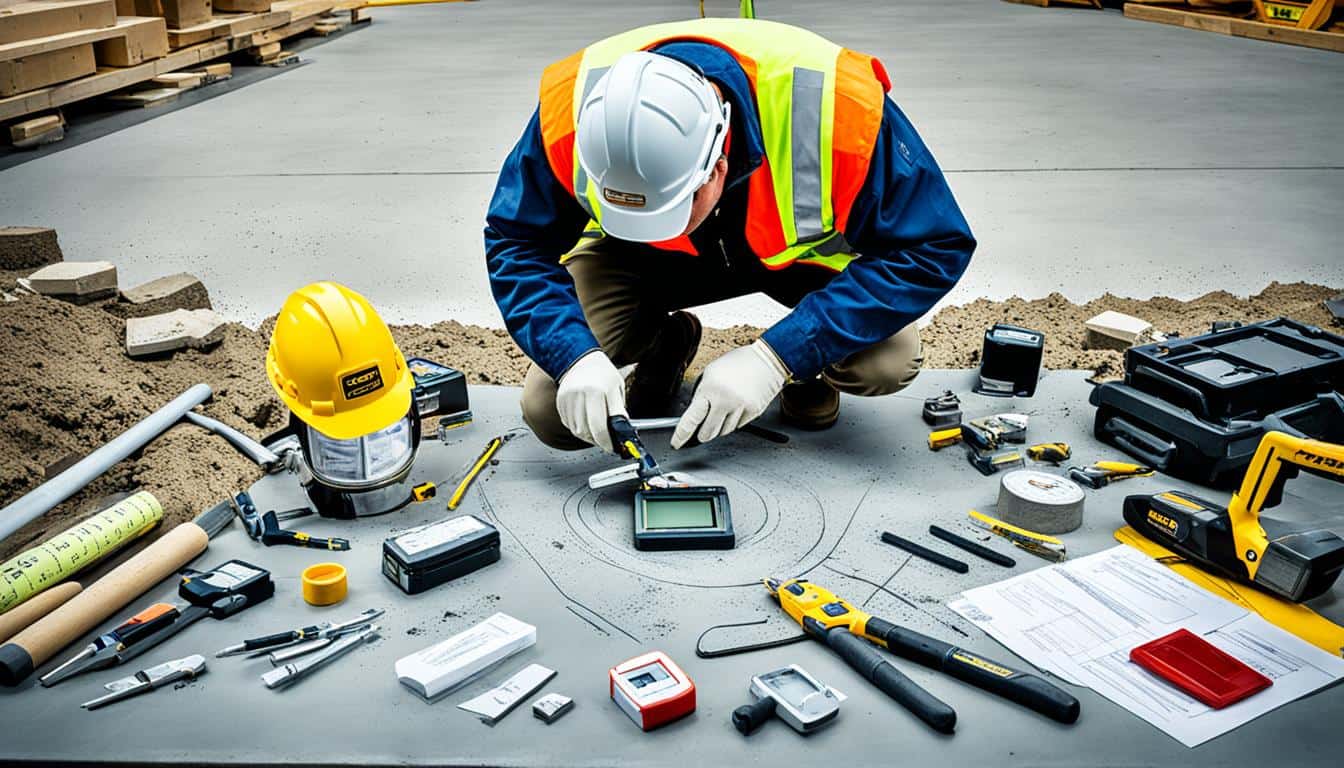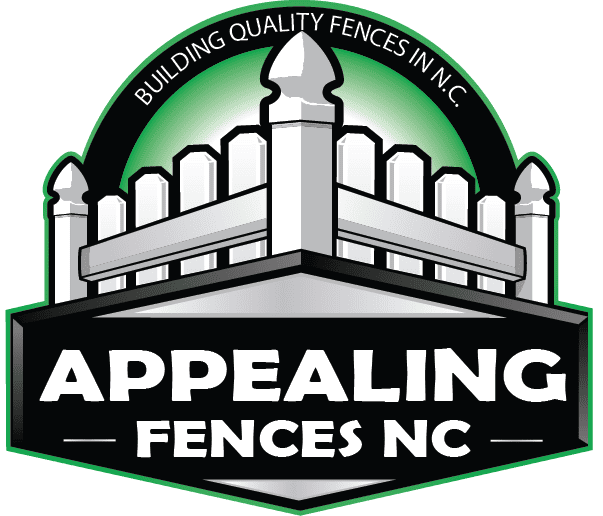

Concrete is the foundation of countless structures, from towering skyscrapers to intricate decorative elements. When considering the integral role of concrete in construction, one might wonder, what does a concrete contractor do? Concrete contractors specialize in the installation, repair, and maintenance of concrete structures, ensuring their durability and longevity.
A concrete contractor plays a crucial role in bringing these construction projects to life, using their expertise to pour foundations, create durable structures, and design stunning decorative elements. In this article, we will explore the responsibilities and diverse skill sets of a concrete contractor, diving into the intricacies of their work in construction projects of all sizes.
Concrete contractors play a vital role in construction projects, and their responsibilities encompass a wide range of tasks. From concrete work to project management, their expertise is essential in ensuring the successful completion of various construction projects.
One of the primary responsibilities of a concrete contractor is to oversee all aspects of concrete work. This includes the preparation, mixing, pouring, and finishing of concrete. They are knowledgeable about different types of concrete and the appropriate techniques for each application, whether it’s for foundations, walls, sidewalks, or driveways. Their expertise also extends to concrete repairs and restoration.
Concrete contractors are not just skilled laborers; they also play a crucial role in project management and coordination. They work closely with architects, engineers, and other construction professionals to ensure that concrete structures meet the project requirements and adhere to safety standards. This involves collaborating on design plans, estimating material quantities, and scheduling concrete deliveries. They are responsible for coordinating the concrete work with other trades for a seamless construction process.
Additionally, concrete contractors are involved in supervising the construction site, overseeing workers, and ensuring that all safety protocols are followed. They prioritize safety on the job site while efficiently managing resources and maintaining timelines.
In conclusion, concrete contractors have various responsibilities that encompass both concrete work and project management. Their expertise in concrete construction and their ability to collaborate with other professionals make them indispensable in the successful execution of construction projects.
One of the core tasks of a skilled concrete contractor is pouring foundations and slabs. These essential components play a vital role in the stability and structural integrity of buildings. A strong and well-constructed foundation is critical for supporting the entire structure and ensuring its longevity.
When pouring concrete foundations, the contractor carefully plans and prepares the excavated area. This involves assessing soil conditions, adding reinforcement materials like rebar, and establishing proper drainage systems. By meticulously following these steps, the contractor creates a solid foundation that can withstand the stresses imposed by the building’s weight and environmental factors.
Concrete slabs also require careful consideration during the pouring process. Whether it’s for floors, driveways, or other purposes, the contractor ensures that the concrete is mixed to the appropriate consistency and properly leveled before pouring. This attention to detail guarantees a smooth, even surface that is both functional and aesthetically pleasing.
The pouring of foundations and slabs is a critical phase in any construction project. It requires the expertise of a knowledgeable concrete contractor who understands the importance of precision, proper curing techniques, and adherence to local building codes and regulations. With their expertise, a concrete contractor ensures that the foundations and slabs are poured correctly, providing the necessary support and strength for the entire structure.
Concrete contractors don’t just focus on the structural integrity of a building; they also add a touch of artistry through decorative elements. With a wide range of design options available, concrete can be transformed into a stunning and personalized feature of any construction project.
Decorative concrete offers endless possibilities for design. One popular option is stamped concrete, which can mimic the appearance of materials like stone, tile, or brick. By using patterns and textures, contractors can create unique and visually appealing surfaces.
Another design option is stained concrete, which adds vibrant and rich colors to the surface. The staining process produces a translucent effect that enhances the natural beauty of the concrete. This option is perfect for adding character to floors, countertops, or even outdoor spaces.
Exposed aggregate is yet another design technique that showcases the natural beauty of the aggregates within the concrete. By removing the top layer of the concrete surface, the aggregates are exposed, creating a unique and textured finish.
To achieve these decorative designs, concrete contractors follow a precise installation process. It begins with careful preparation of the site, including leveling the ground and creating proper drainage systems, ensuring a solid foundation for the decorative elements.
The next step involves pouring and placing the concrete. Contractors use specialized tools and techniques to achieve the desired texture and finish. For stamped concrete, experts press stamps onto the surface when the concrete is still pliable, imprinting the desired pattern.
If stained concrete is the chosen option, contractors apply the stain once the concrete has cured and dried. This process involves carefully selecting and applying the stain to achieve the desired color and effect. For exposed aggregate, the top layer of the concrete is removed to reveal the aggregates below, resulting in a unique and textured finish.
After the installation is complete, contractors ensure proper curing and sealing of the decorative elements. This helps protect them from the elements and enhances their longevity.
Designing and installing decorative elements requires the skill and expertise of a concrete contractor who can bring creativity, technical knowledge, and attention to detail to every project. By transforming plain concrete into an eye-catching feature, these decorative elements add value and aesthetic appeal to any construction project.
Concrete structures are known for their durability and longevity. However, over time, they can develop issues such as cracks, spalling, and other damages due to various factors like weather conditions, heavy loads, and wear and tear. That’s where the expertise of a concrete contractor in concrete repair and restoration comes into play.
Concrete repair is a specialized process that involves identifying the root cause of the problem and implementing the necessary techniques to fix it. Common issues faced by concrete structures, such as cracks and spalling, can compromise their structural integrity and aesthetics. A skilled concrete contractor possesses the knowledge and experience to assess the extent of the damage and determine the most suitable repair solution.
Regular maintenance of concrete structures is vital to prevent major issues and extend their lifespan. A concrete contractor can provide valuable insights and recommendations on maintenance practices, such as cleaning, sealing, and protective coatings, to ensure the longevity and performance of the concrete surface.
By entrusting your concrete repair and restoration projects to a skilled and experienced concrete contractor, you can be confident that your structures will be restored to their former strength and beauty. Whether it’s fixing cracks, repairing spalling, or providing routine maintenance, a concrete contractor is your partner in preserving the integrity of your concrete investments.
In the world of concrete construction, collaboration is key. Concrete contractors work closely with architects and engineers to ensure that every facet of a project meets the required specifications and adheres to safety standards. This symbiotic relationship between concrete professionals and design experts is crucial in creating structures that are not only aesthetically pleasing but also structurally sound.
Architects bring their creative vision to the table, designing the overall look and feel of a building or space. They consider factors such as functionality, aesthetics, and sustainability. At the same time, engineers provide the technical expertise needed to ensure that the design can be successfully implemented. They analyze the structural integrity of concrete elements and calculate loads, stresses, and reinforcements necessary for a safe and durable construction.
To achieve successful collaboration, effective communication and coordination between all parties involved are essential. Concrete contractors work closely with architects and engineers throughout the entire construction process, from the initial planning stages to the final execution. Regular meetings, site visits, and discussions help ensure that everyone is aligned and working towards the same goals.
The input of architects and engineers is especially valuable during the design and planning phase. Concrete contractors rely on their expertise to make informed decisions about the most suitable concrete mixtures, reinforcement methods, and construction techniques. This collaboration ensures that the concrete structures meet the design intent while adhering to safety regulations and standards.
Concrete contractors bring their own expertise to the collaborative process. With their knowledge of concrete properties, construction techniques, and industry best practices, they offer valuable insights and suggestions to optimize the design and construction process. Additionally, they can advise architects and engineers on the feasibility and cost-effectiveness of design elements, helping to find the right balance between creativity and practicality.
Furthermore, concrete contractors have a deep understanding of the concrete industry and stay up-to-date with advancements in materials and technologies. This knowledge allows them to recommend innovative solutions and alternative materials that can enhance the performance and sustainability of concrete structures.
Collaboration doesn’t stop with architects and engineers. Concrete contractors also coordinate with other construction professionals, such as project managers, construction supervisors, and subcontractors. This collaboration ensures that each team is aligned and working together towards successful project completion, as each professional brings their unique expertise to the table.
By collaborating with architects, engineers, and other construction professionals, concrete contractors play an integral role in creating high-quality and safe concrete structures. Their expertise and close collaboration help turn design concepts into reality, resulting in durable, functional, and visually stunning buildings and spaces.
Building codes and regulations play a crucial role in ensuring the safety and integrity of construction projects. As a concrete contractor, it is essential to have a thorough understanding of these codes and regulations to adhere to the established standards.
One of the key aspects of compliance is obtaining the necessary permits for concrete-related construction projects. These permits serve as a validation that the project meets the required safety, environmental, and structural requirements set forth by the authorities.
Complying with building codes and regulations not only guarantees the safety of the workers and the public but also helps avoid potential legal issues and financial penalties. It demonstrates a commitment to delivering quality work in accordance with industry standards and best practices.
A concrete contractor’s responsibility goes beyond simply pouring concrete and completing the project. They must stay updated with the latest building codes and regulations, which often undergo revisions and updates over time. Continuous education and training are essential to ensure compliance and maintain professional competency.
By adhering to building codes and regulations, a concrete contractor contributes to the overall success of the construction project. They help create structures that are not only aesthetically pleasing but also structurally sound, ensuring the longevity and durability of the completed project.
Concrete contractors rely on a range of advanced tools and equipment to carry out their work efficiently and effectively. The integration of technology in the construction industry has revolutionized the way concrete is handled, resulting in enhanced precision, productivity, and quality.
One example of advanced technology utilized by concrete contractors is laser-guided screeds. These cutting-edge tools ensure a level and even surfaces by automatically leveling and smoothing freshly poured concrete. By eliminating the need for manual screeding, laser-guided screeds significantly reduce labor time and improve the accuracy of concrete flatness and levels, leading to superior results.
Additionally, automated concrete finishing machines have become instrumental in achieving flawless finishes and textures. These machines use advanced algorithms and sensors to intelligently control the placement and finishing process, resulting in consistent and high-quality surfaces. With the ability to adjust settings to meet specific project requirements, these machines provide concrete contractors with unparalleled control and efficiency.
Beyond laser-guided screeds and automated concrete finishing machines, concrete contractors utilize a wide range of technologically advanced tools and equipment. Concrete mixers and pumps have evolved to offer greater capacity, reliability, and precision in mixing and transferring concrete. These advancements enable contractors to streamline their operations and meet project timelines more effectively.
Moreover, technological advancements have given rise to mobile concrete batching plants. These portable units allow contractors to produce concrete on-site, reducing transportation costs and ensuring a steady supply of fresh concrete. These plants incorporate advanced monitoring systems to track and adjust concrete mix proportions in real time, resulting in consistent quality throughout the construction process.
Incorporating advanced tools and equipment in concrete construction has become a hallmark of quality and innovation. By leveraging the latest technology, concrete contractors can optimize workflow, reduce material waste, and ensure superior craftsmanship. These tools not only improve the efficiency and accuracy of concrete work but also open up new possibilities for design, enabling the creation of intricate and visually stunning structures.
As technology continues to advance, the use of tools and equipment in concrete construction will only become more integral. Concrete contractors, always at the forefront of innovation, remain committed to exploring and adopting the latest advancements to provide exceptional results to their clients.
When it comes to concrete construction, safety should always be the top priority on the job site. Concrete contractors understand the importance of implementing and maintaining proper safety measures to protect workers and create a secure working environment.
Concrete contractors diligently follow a set of safety protocols and measures to minimize the risk of accidents and injuries. This includes conducting regular safety inspections, identifying potential hazards, and implementing necessary precautions to mitigate them. By adhering to these protocols, contractors ensure that their job sites remain safe and accident-free.
Concrete contractors prioritize the use of personal protective gear to safeguard their workers. This includes providing and enforcing the use of safety helmets, goggles, gloves, and steel-toe boots to minimize the risk of head injuries, eye injuries, hand injuries, and foot injuries. By equipping workers with the proper protective gear, concrete contractors ensure their safety while working on-site.
In addition to implementing safety measures, concrete contractors strictly adhere to safety guidelines and regulations set by industry standards and governing bodies. This ensures that every step of the construction process is carried out in a safe manner. By following these guidelines, contractors maintain a safe working environment for their workers and enhance overall job site safety.
By prioritizing safety, implementing proper safety measures, providing personal protective gear, and adhering to safety guidelines, concrete contractors demonstrate their commitment to creating a secure working environment on job sites. These safety efforts not only protect workers but also contribute to the successful completion of construction projects with minimal risks and accidents.
Ready to transform your space with top-notch concrete work? Discover what a concrete contractor does with our expert team at Appealing Fences NC. We specialize in crafting custom driveways, patios, and sidewalks, adding both style and durability to your property. Our crew will guide you through the entire process, from initial consultation to the final polished look, ensuring a smooth, stress-free experience. Contact us today for a free estimate and see how our quality craftsmanship can elevate your outdoor living space.
